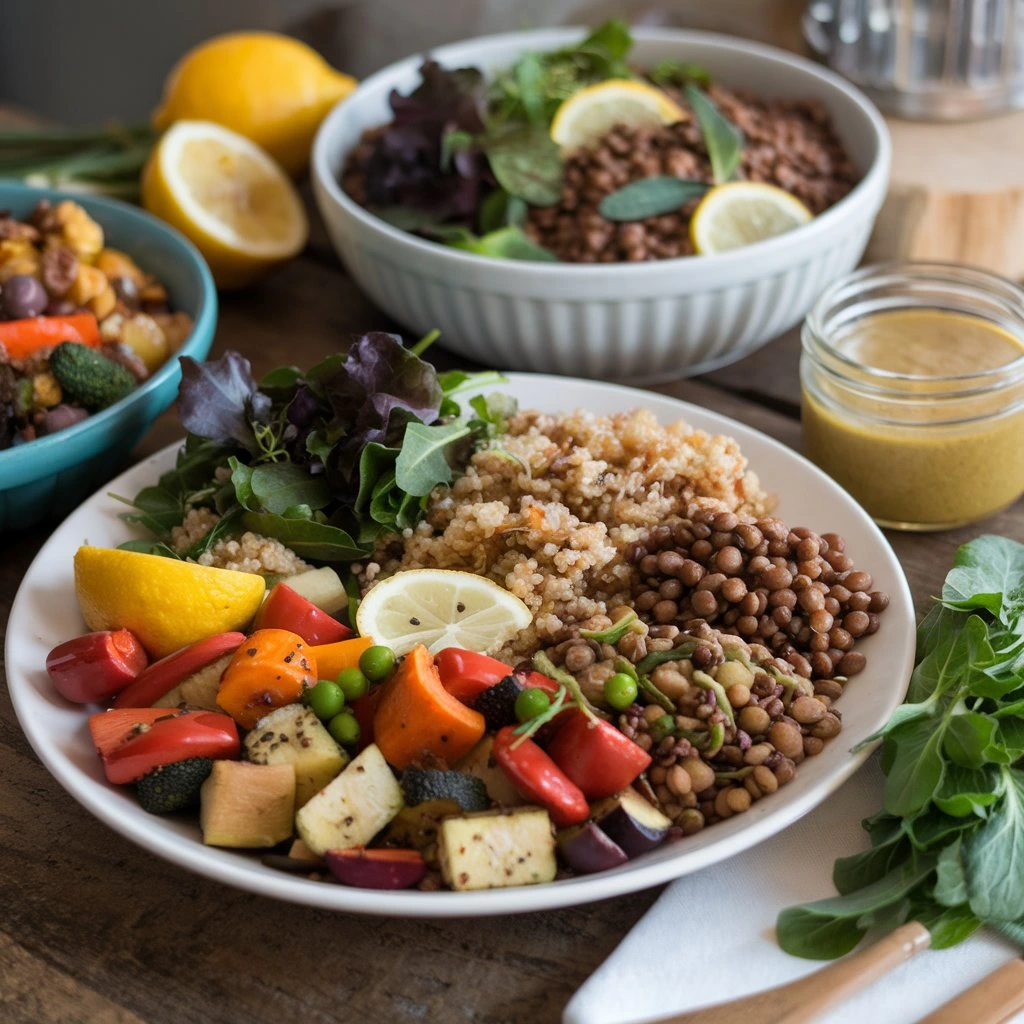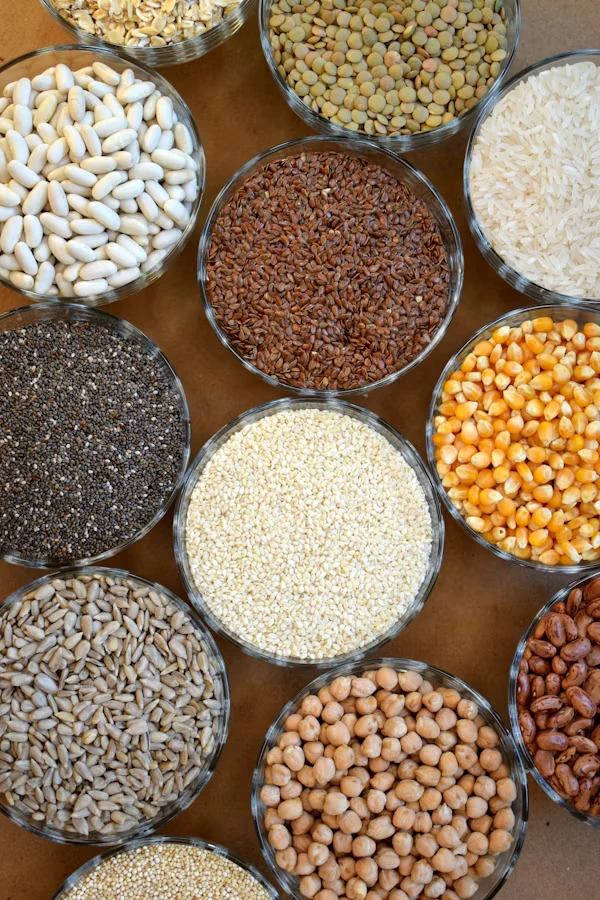Plant-Based Nutrition Made Easy in South Africa

Introduction: Embracing Plant-Based Nutrition in South Africa
Here’s your guide to plant-based nutrition made easy in South Africa.
I’ve been a health and wellness advocate for years. I’ve seen firsthand how changing your diet can transform your life.
Many South Africans are now choosing plant-based diets.
The movement is now a substantial shift. It promotes a healthier, sustainable, and kinder lifestyle.
I’ve noticed, however, that many people are still hesitant.
Some people believe that a plant-based diet in South Africa is too expensive. They say it’s hard to stick to and clashes with our traditional foods. I understand these concerns entirely.
Giving up familiar foods can be scary.
Starting a new way of eating might feel overwhelming.
That’s precisely why I wanted to write this comprehensive guide.
I aim here to simplify plant-based nutrition. My goal is to give you a practical roadmap focused on South Africa.
In this article, I’ll show you how to fill your pantry with local, affordable ingredients. You’ll also learn to create tasty, wholesome meals that boost your energy.
Let’s break down myths about protein costs.
I’ll also share my top tips to make this lifestyle fun and sustainable. Ultimately, this isn’t about perfection; it’s about progress.
Let’s begin this journey together.
We’ll explore how easy and rewarding plant-based nutrition can be in South Africa.
Understanding the “Why”: The Benefits of Plant-Based Nutrition for South Africans
Choosing a plant-based diet isn’t just about what you eat.
Health Benefits
It affects our health, our planet, and our communities.
As a South African, I notice how common chronic diseases are, like heart disease and diabetes.
Our traditional diet, which is often meat-heavy, contributes to this issue.
A compelling reason to try plant-based nutrition is that it can enhance our health.
Studies repeatedly demonstrate that a diet abundant in fruits, vegetables, and legumes can substantially diminish the risk of many chronic non-communicable diseases (NCDs). Thus, helping to manage blood pressure, lower cholesterol, and maintain a healthy weight.
Environmental Impact
Beyond personal health, we also have a responsibility to our beautiful country. The environmental benefits of shifting towards plant-based foods are truly substantial.
Animal farming consumes a significant amount of land, water, and energy. This shows its considerable impact.
Eating less meat and dairy helps lower our carbon footprint. This change also supports a more sustainable food system.
This isn’t just a global issue; it’s a local one that affects our precious natural resources.
Ethical and Social Considerations
Finally, there are the ethical and social dimensions.
Many people discuss animal welfare, and I believe it’s an important topic.
We boost our food economy and improve community safety by focusing on local, plant-based foods.
The reason for plant-based nutrition is simple. It helps us take care of ourselves, our planet, and each other.
The South African Pantry: Building Your Plant-Based Nutrition Foundation
Many people think that a plant-based diet requires a whole new shopping list. They believe you should fill it with expensive, imported items.
But I’ve discovered the exact opposite is true, especially here in South Africa.
Local and Affordable Staples
For a sustainable switch, choose local and affordable staples. These local staples are not only delicious but also healthy and nutritious. You can find these at any supermarket or spaza shop.
Grains
First, let’s talk about grains. Mielie pap, samp, and mielie rice are more than just comfort foods. They are also a great, affordable source of energy.
Brown rice and oats are readily available. They work well in many meals, like breakfast porridge or hearty stir-fries.

Legumes
Next, I want to emphasise the importance of legumes.
Lentils, chickpeas, and beans are key in South Africa’s plant-based diet. This includes local favourites like sugar beans and kidney beans. They’re full of protein and fibre. A single bag can last for weeks, making them a budget-friendly choice.
Fruits and Vegetables
I recommend buying fresh produce that’s in season. Also, shop at local markets. This is where you’ll find the freshest and most affordable fruits and vegetables.
Imagine a colourful dish with sweet potatoes, butternut squash, and spinach. These ingredients are easy to find.
Nuts and Seeds
A simple, plant-based diet should also include nuts and seeds.
Peanuts and sunflower seeds can be very affordable. They can be used for snacking or making sauces, even if some options are pricey.

Spices and Herbs
Finally, don’t forget the spices!
Our diverse food scene gives us access to amazing spices like curry powder and peri-peri. These spices can make simple plant-based meals go from good to great.
Start by building a strong pantry. This is the key first step for a tasty South African plant-based lifestyle.
Making it Work: Practical Plant-Based Nutrition Tips for South African Life
One of the biggest hurdles I see people face when adopting a new diet is the fear that it will be too much work.
With some planning and creative strategies, plant-based nutrition can be easy.
The key is to blend these new habits into your South African lifestyle.
Meal Planning Made Easy
To start, I’ve found that plant-based meal planning is a game-changer. I usually set aside a small amount of time on a Sunday to plan my meals for the week. This helps me keep on budget and saves me time and stress during hectic weekdays.
When I’m shopping, I make a list and focus on the affordable pantry staples we just discussed. It’s a great way to have all I need for my tasty South African plant-based recipes.
Shopping on a Budget
And speaking of shopping on a budget, I’ve learned to embrace the market culture. The fresh produce at my local market is significantly less expensive than at the supermarket. Plus, it’s a great way to support local farmers.
Eating Out in South Africa
Let’s be real, we all love eating out.
What about finding plant-based options in South Africa?
The good news is that it’s becoming increasingly easy.
Many establishments now offer vegan or vegetarian alternatives on their menus. Indian and Ethiopian places are great choices. They usually have many vegetable-based dishes. I’ve even seen popular chains like Mugg & Bean introduce fantastic plant-based meals.
Quick & Easy Plant-Based Recipes
To make things even simpler, I’ve developed a fondness for quick and easy recipes.
Try a hearty lentil bobotie, a tasty chakalaka with baked beans, or a simple vegetable potjie. These dishes show how to adapt local cuisine for a plant-based lifestyle. You won’t lose taste or tradition!
It’s all about working with what we have and creating something extraordinary from it.
Debunking Myths: Addressing Common Concerns about Plant-Based Nutrition
Navigating plant-based nutrition can feel like a complex maze of misinformation.
I often hear people say, “But where do you get your protein?” and “Isn’t it unhealthy without all those nutrients from meat?”
These are good questions, but they often stem from common myths that can be easily disproven.
Let’s tackle the protein question first.
I once believed I had to carefully mix various plant foods at every meal to get all the essential amino acids. However, I’ve learned that this is an outdated notion.
Your body gets what it needs if you eat a balanced and diverse diet every day. So, eat a variety of protein sources. Include lentils, chickpeas, beans, and nuts.
Another big one I often hear relates to micronutrients.
People worry about deficiencies in iron, calcium, and especially Vitamin B12. A well-planned plant-based diet in South Africa can give you a lot of iron and calcium. You can acquire these nutrients through leafy greens, sesame seeds, and fortified plant milks.
But Vitamin B12 is the only nutrient that you can’t get easily from plants. This is where supplements come in, and it’s a small, easy step to ensure I’m getting everything my body needs.
Finally, there’s the concern about soy. I’ve seen countless articles claiming that it’s bad for you.
Eating whole soy foods, such as edamame and tofu, can be a healthy choice. They fit well in a plant-based diet.
It’s an affordable, complete protein source that is widely available in South Africa.
Trust me. With some knowledge, you can easily tell fact from fiction. This way, you’ll feel confident in your choices.
FAQ: Plant-Based Nutrition Questions from South Africans
One of the best parts of writing this guide is getting to answer the specific questions I know are on your mind.
Here’s a quick FAQ to address common questions from South Africans about plant-based nutrition.
How can I ensure I get enough protein on a plant-based diet in South Africa?
I get this question all the time! The truth is, it’s much simpler than you think. Our local staples are packed with protein. I rely on a mix of lentils, chickpeas, and beans to form the foundation of my meals. Don’t forget to add nuts and seeds, including peanuts and sunflower seeds. They are cheap and a great source of protein. Adding a few tablespoons to a salad or porridge can make a significant difference.
Is a plant-based dietin South Africa Expensive?
This is a huge myth I love to debunk! Some pre-made vegan products can be pricey. However, a whole-food plant-based diet in South Africa is very budget-friendly. Think about the cost of a bag of dried lentils or a sack of potatoes compared to meat. Focus your diet on these basics and buy seasonal produce from local markets. This can help lower your grocery bill.
What are some indigenous South African plant-based foods I can eat?
This is a fun one! I love celebrating our local heritage.
Try traditional foods such as amadumbe (a root vegetable), morogo (wild spinach), and imifino (a mix of leafy greens). Many of these foods are very nutritious. You can add them to classic dishes for unique, healthy meals.
Where can I find plant-based alternatives to meat and dairy in South Africa?
Fortunately, the market has expanded a lot. Many supermarkets, such as Woolworths, Checkers, and Pick n Pay, now have dedicated sections for plant-based products. Local brands like Fry’s Family Foods and Herbi Vohr provide tasty options. They offer plant-based boerewors and mince, among other products. Online stores like Faithful to Nature offer a diverse range of products.
Conclusion: Your Journey to Plant-Based Nutrition Made Easy
So, there you have it.
In conclusion, I aim to demonstrate that a rewarding plant-based diet is not only possible but also easily accessible in South Africa.
We’ve discussed the strong reasons for the shift. It helps your health and the environment. We also shared practical tips for everyday use.”
I’ve shared my tips for stocking a local pantry. I also cover meal planning on a budget and effective social situation management.
My biggest takeaway for you is this: you don’t have to do it all at once. The beauty of a plant-based lifestyle is that it’s a spectrum.
Start small. Try a “meatless Monday” or swap one meal each day for a tasty, plant-based option. The goal isn’t perfection. It’s about making choices that feel right for you.
Please view this not as a strict diet. Think of it as a fun journey into new foods and flavours. It’s also about becoming a healthier you.
I hope you feel empowered and inspired to take that first step.
You can visit your local market to find new vegetables. Or, try one of the easy recipes we discussed.
Initiating plant-based nutrition in South Africa is a wise choice for you and our shared future.
Go ahead, give it a try—I know you’ll love it.
Please leave your comments below about your experience.

3 thoughts on “Plant-Based Nutrition Made Easy in South Africa”